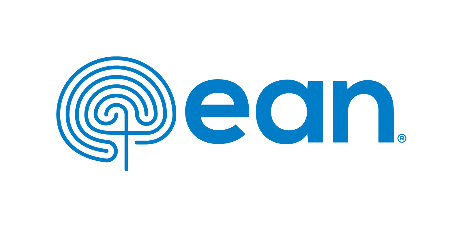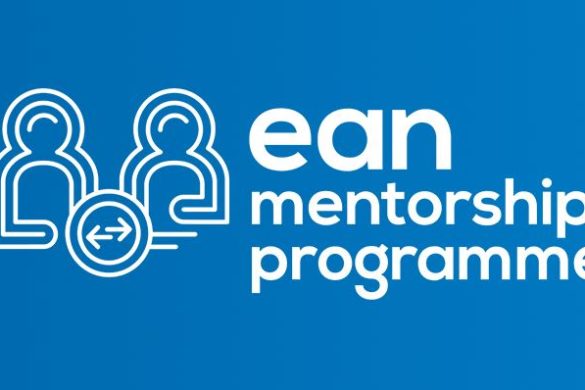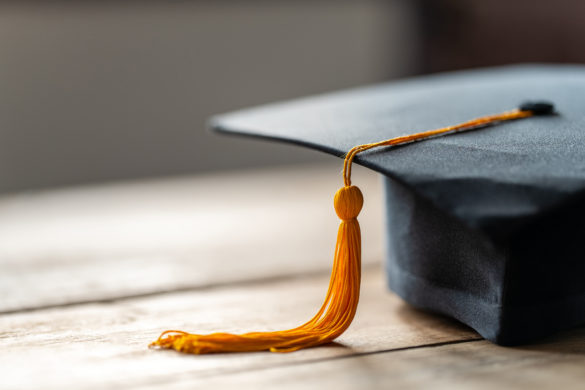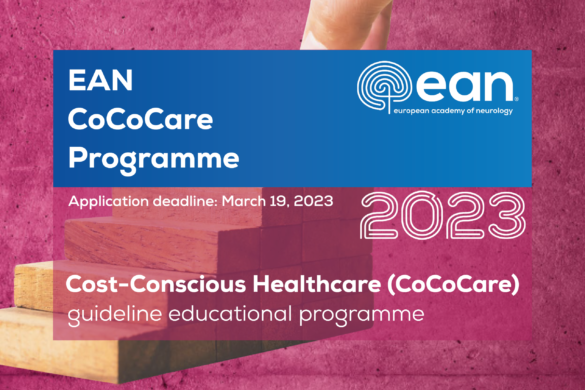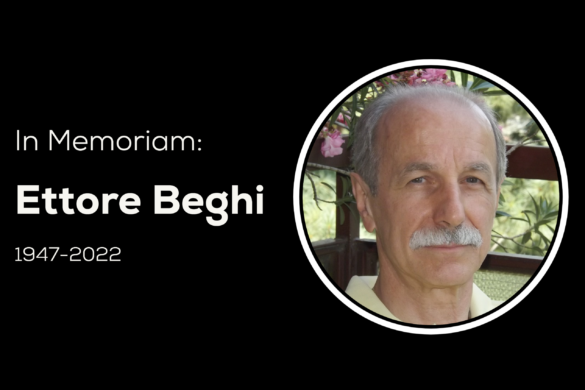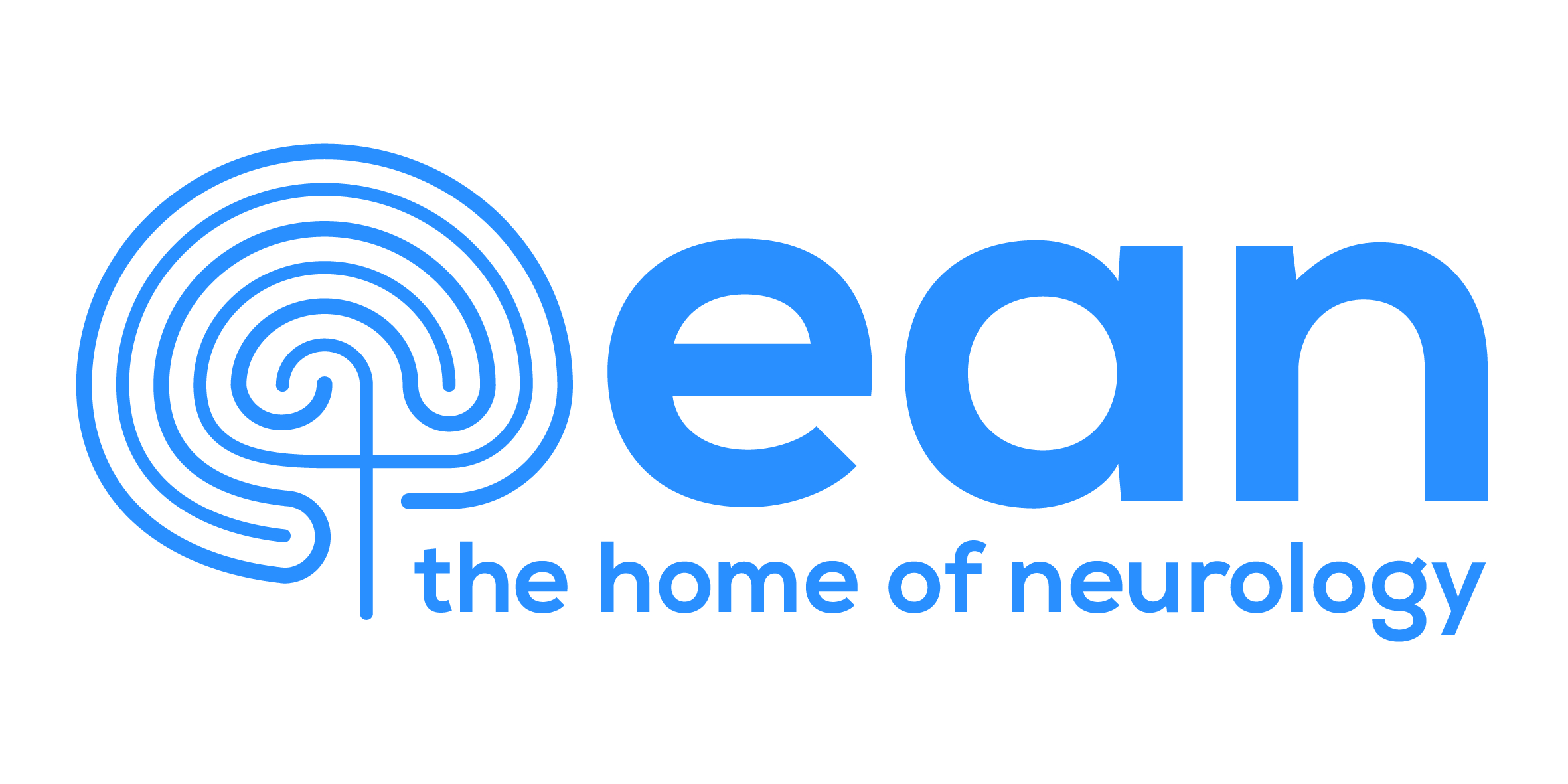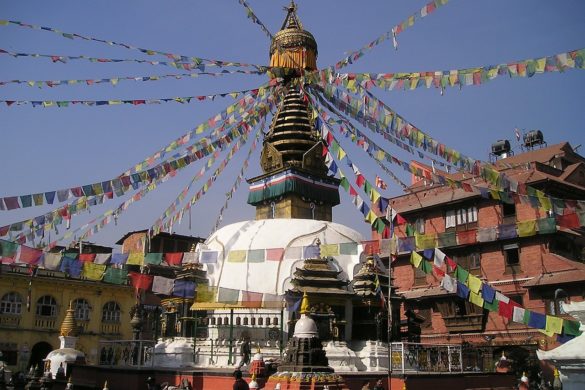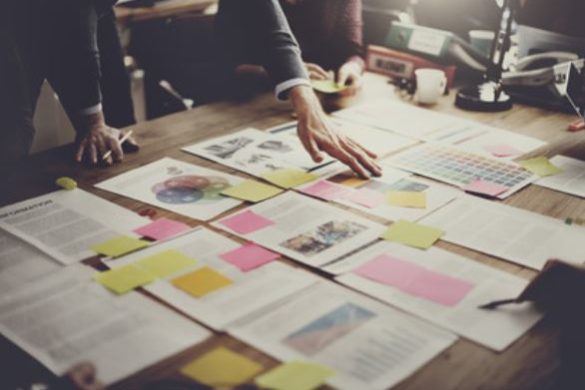Report from Dr Pawel Chochol from Poland visiting the Department of Neurology at the Royal London Hospital, United Kingdom under the supervision of Dr Salek-Haddadi.
I visited the United Kingdom on an eight-week Department-Department Co-Operation Programme at the Royal London Hospital, Barts and The London NHS Trust. I worked at Departments of Neurology, Stroke and Emergency as well as outpatient clinics. My main supervisor and person who provided me with invaluable help was Dr Salek-Haddadi, neurology consultant.
Before starting the programme I signed the necessary documents in the hospital’s Human Resources Department and underwent tests in the Occupational Health Department.
By taking part in every-day activities I had the opportunity to learn the approach to examine, diagnose and treat patients. As the hospital is renowned for its stroke unit, I experienced the best possible and up-to-date treatment options, including thrombolysis and thrombectomy. The extremely effective procedure they use allows assessing patients and starting treatment as quickly as possible. I had the opportunity to take part in the detailed diagnostic process of a young patient with cerebral amyloid angiopathy and a middle age woman with acute onset of headache after AVM bleeding who was treated with radiation therapy. Working with neurology consultants and specialist registrars gave me incredible insight into a variety of neurological conditions like HIV-induced myositis, neurosarcoidosis as a testicle tumour treatment side effect, neurologic manifestations of hyperammonemic disorder after child-birth, different types of CNS vasculitis, meningitis, encephalitis etc. I took care of patients during scheduled intravenous treatment for myasthenia gravis, multiple sclerosis, and multifocal motor neuropathy. In outpatient clinics I was involved in management of movement disorders, epilepsy, and multiple sclerosis. Especially valuable were weekly clinic-radiological meetings where I had an opportunity to compare clinic with radiological investigations and Thursday presentations of interesting neurology and neurosurgery cases, as well as discussing newest trials results from around the world.
During my visit I stayed in the hospital hotel which was 500 pounds per month. This solution allowed me to save money on rent and travel. Even though all my expenses exceeded the sum of the grant, having this opportunity was priceless.
I felt that my visit was very worthwhile and beneficial even though not long enough. The knowledge I gained in the UK will be certainly very useful in my future practice.
I hope there will be further opportunities to learn, exchange knowledge and meet with colleagues from different countries for young neurologists like myself. I am very much indebted to EFNS for having provided me with this wonderful chance and especially for the great cooperation with Ms Dohnalová. I am also very grateful to Dr Salek-Haddadi who is a wonderful person and high-class professional who helped me in every way he could to make my visit fruitful.
***************************************************
Report from Dr Catalina-Ioana Coclitu from Romania visiting the Division of Clinical Neurology, Queen´s Medical Center at the University Hospital in Nottingham, United Kingdom, under the supervision of Professor Cris Constantinescu.
I had the great opportunity to visit the Division of Clinical Neurology at the Queen’s Medical Centre in Nottingham within the EFNS “Department to Department Co-operation” programme. The visit enlightened my future prospects and gave me the opportunity to meet people who influenced the approach to my career.
The Division of Clinical Neurology in Nottingham has a prestigious history in the field of neurology, so I had the pleasure and the opportunity to meet neurologists from all neurological fields.
As it was my second visit to the Neurology Department in Nottingham I succeeded in organising myself better than the first time in attending neurology clinics, ward rounds and being part of the interactive teaching courses. It was a great opportunity for me to enhance my knowledge and consolidate a different approach to neurological disease.
I participated as a visitor to the clinical activity within the Neurology Department. This was a unique opportunity for an eastern European neurologist to have access to a department where anyone can come into contact with almost any neurological pathology. I took a high interest in the Multiple Sclerosis Clinic (coordinated by Professor Constantinescu), in the General Neurology Clinic, where I assisted Dr Tatiana Mihalova and in the Neuromuscular Disorders Clinic (headed by Dr Paul Maddison). The clinics focused on diagnosis and differentials providing me a closer look to how guidelines of diagnosis should be practiced. Also, I learned about rare neurological diseases and how the diagnosis should be approached.
I was really impressed that everybody, from junior to senior doctors, was very open and friendly and happy to help with anything I needed.
In what concerns the expenses, I lived in a university residence where I paid 450/month for rent. When talking about expenses, one must take into account the cost of living in the UK. These almost surpassed the value of the grant. I had the advantage of living close to the hospital (10 minutes’ walk) so I didn’t have to pay extra for the transport.
Overall, the EFNS Department-to-Department visit was an interesting, instructive and incentive experience which I would recommend to any of my colleagues.
***************************************************
Report from Dr Oana Costache from Romania visiting the Neurology Department at the Heidelberg Kopfklinik, Germany.
First of all, I would like to thank all the people involved in the “Department to Department Co-operation Programme” for the great opportunity I was offered when I was awarded the grant. It has been more than a medical experience for me – it was a lesson for my future career as a neurologist.
I began my period in Heidelberg on the 1st of July 2014. Everything was arranged previous to my arrival: my accommodation, my contract with the hospital etc. From the very first moment I was given hospital equipment and was referred to the medical staff on the Stroke Unit. There I found a friendly team that was willing to integrate and help me with everything needed.
I spent my first four weeks in the Stroke Unit. The daily programme was from 8 am until 5-6 p.m. In the morning we had a meeting with all the staff from the Stroke Unit where we would talk about the problems that occurred during the night with the problems. After that, at 8.30 a.m., the meeting with the neuro-radiologists was one of my favourite: all the CT, MRI scans and angiographies performed the day before were discussed with the whole staff from the Neurology Department. I found that to be very useful and educative. In my opinion, a close collaboration like the one in Heidelberg between neurologists and radiologists is the success key to modern neurology.
After that we spent a lot of time on the ward with the patients. I managed to learn more about their protocols and guidelines in treating strokes but not only that. I assisted my colleagues and as well performed lumbar punctures, withdrawal of blood, examining patients etc.
During the day (to be more precise at 1 p.m.) there was the second meeting with the neuro-radiologists. I was given the chance to learn more about Doppler examinations, EEG, transthoracic echocardiography and transoesophagus echocardiography. Whenever a patient needed sedation for an MRI I could join my resident colleague and help him/her with all the procedures needed to be done.
My last two weeks were in the emergency room, where I was given a very warm welcome. The programme remained the same but the work changed a little as it is well known that in the emergency room all kind of patients and cases can be seen. There I had the opportunity to learn more about thrombolysis, in all the aspects (infrastructure, procedures, clinical trials regarding thrombolysis etc.).
I can say that this period was a great asset for me. It changed me in a good way and I hope I will be able to apply everything I learned in my daily work in Romania.
I would like to emphasis one negative aspect, even though it wasn`t related to the hosting clinic, but to my accommodation. Everything was perfect until the moment I returned to my home country and asked for the deposit money I paid prior to my arrival in Heidelberg (a total of 575 Euro). I was informed that an extra tax of 21 euro will be charged, even though I paid 50 euro for the final cleaning (for a room of 40 square meters). The reason was odd (extra time was needed for cleaning because hair was found in the bathroom and on the floor) and I consider this matter uncomfortable. I left the room tidy, clean but not swept because I thought that the 50 Euro tax should cover this problem. Maybe future guests that will stay there should know that you are expected to leave the apartment perfectly clean so no more than 50 Euro for final cleaning will be charged.
If I was to speak about the life costs in Heidelberg I would mention that I paid for rent a total of 830 Euro (including VAT). Eating lunch at the hospital was approximately 4-5 euro/day. In general food is cheap so the 1500 euro I was awarded was enough to cover daily needs. For travelling/visiting Heidelberg and around some more expenses can appear.
To sum it up, I would like to thank everybody involved in this programme because I was given not only a great opportunity but also a life experience.
Yours sincerely, Oana Costache
***************************************************
Report from Dr Farkhod Yunusov from Uzbekistan visiting the Department of Neurology and Clinical Neurophysiology at Medizinische Hochschulde Hannover, Germany under the supervision of Professor Dr Dengler.
I was chosen for the opportunity to join the European Federation Neurological Societies Department to Department Co-operation Programme 2014, which enabled me to use both my educational and professional experience. It was an ideal prospect in regard of my experience, education, skills and career interests.
I am currently an international trainee at the Medizinische Hochschule Hannover (MHH). As a potential young doctor, I strive to be a tremendous asset to the MHH by devoting all my time to gaining a deep knowledge from worldwide famous professors and doctors, becoming an excellent physician and scientist. I believe that I am obligated to use my talents in a constructive manner, in a manner that benefits society. This programme gave me the unique opportunity to express my talents while benefiting human life.
I am very interested in stroke, especially in interventional neuro-radiology, because stroke is the second leading cause of death worldwide. The role of interventional neuro-radiology methods is very high. One of them is thrombolysis and mechanical thrombectomy, which are minimally invasive image-based technologies and procedures used in diagnosis and treatment of a stroke.
The Stroke Unit of the MHH has it´s own algorithm of early diagnosis and treatment. It should be noted that such guidelines are created and updated by the German Stroke Society according to evidence-based medicine. I managed to participate at the morning conferences of the department, which were organised with neuro-radiologists, where I have received information about interesting neurological patients with neuroimaging results. I tend to think, as a neurologist, that low level of secondary morbidity after stroke in Germany is a result of the correct use of high effective mini-invasive methods of diagnosis and treatment of stroke, particularly thrombolysis and endovascular procedures in a short time, i.e. within the “therapeutic window”. Time between admission of patient to the hospital and that moment, when “cause-thromb” is disappearing, is maximum 40 – 60 minutes, and every day all medical staff of the Stroke Unit discuss the results of the previous day and draw-up a schedule for the following day – these factors are major in a protection of health and life of magnificent people.
Also, I have to say about the Clinical Neurophysiology Laboratory of the MHH, which is gaining successful results under the guidance of Professor Reinhard Dengler. The laboratory of the MHH uses the newest and latest method of Multiple Sclerosis, amyotrophic lateral sclerosis and Parkinson´s disease diagnostics. The research direction of the laboratory is conducted in cooperation with well-known “expert” scientists in these areas such as Professor M. Stangel and Professor D. Dressler. I am sure, if the German Health Care System keeps this development rate of medicine, then in the next few years all the newest guidelines will be based on German experience.
I am unable to list the weaknesses of German Medicine, since I have not seen them. Probably it would be restricted by knowledge of the English language, but please believe me, I did not feel any language discomfort in my surroundings.
Once again I would like to thank you for your valuable support. I am sure, this experience will be a key to my future as a high qualified specialist. And I hope I can visit this amazing country and share my knowledge with my German colleagues and friends again.
***************************************************
Report from Dr Tamar Jishkariani from Georgia visiting the Department of Neuro-otology at theNational Hospital for Neurology and Neurosurgery in London, United Kingdom under the supervision of Professor Luxon.
During the period of six weeks practice in the department of Neuro-otology at UCLH (The National Hospital for Neurology and Neurosurgery) I, Tamar Jishkariani, attended all activities at the unit. I was engaged in all their activities, including clinical assessment of patients with all forms of peripheral and central vestibular dysfunction, vestibular rehabilitation physiotherapy, and cognitive behavioural therapy. I had the opportunity to observe the full range of neuro-otological tests, including audiometry, impedance studies, brainstem evoked responses, otoacoustic emissions, caloric testing, electronystagmography, videonystagmography, cervical and ocular vestibular myogenic evoked potentials, head impulse tests and posturography. I attended all clinical meetings and discussions about interesting cases. It was excellent for me to experience the working style of Great Britain experts in order to get more knowledge and skills for the correct diagnosis and management of patients according to recently approved principles.




